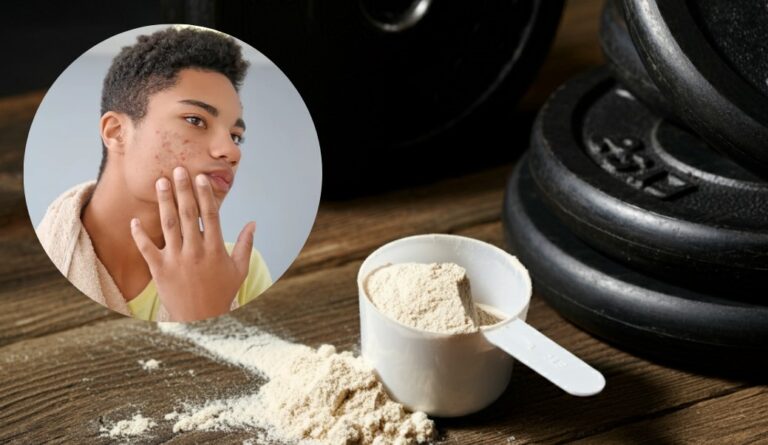Creatine has become one of the most popular supplements among athletes and fitness enthusiasts, known for its ability to boost strength and muscle growth. However, a debate persists: Can creatine cause acne?
Some claim their skin breaks out after starting creatine, while others experience no changes. This division has led to conflicting opinions, and the scientific evidence remains inconclusive.
So, does creatine cause acne, or are other factors at play?
The Alleged Link Between Creatine and Acne

Scientific research does not establish a direct cause-and-effect relationship between creatine supplementation and acne.
It is a misconception that largely arises from anecdotal reports rather than solid scientific evidence.
Most studies on creatine are centered on its benefits for muscle performance, energy production, and strength gains. The focus is rarely on its impact on the skin.
Nonetheless, the timing of acne breakouts after starting creatine leads many to suspect a connection. The confusion is understandable, given that lifestyle changes often accompany the introduction of new supplements.
Why Creatine is Often Blamed for Acne
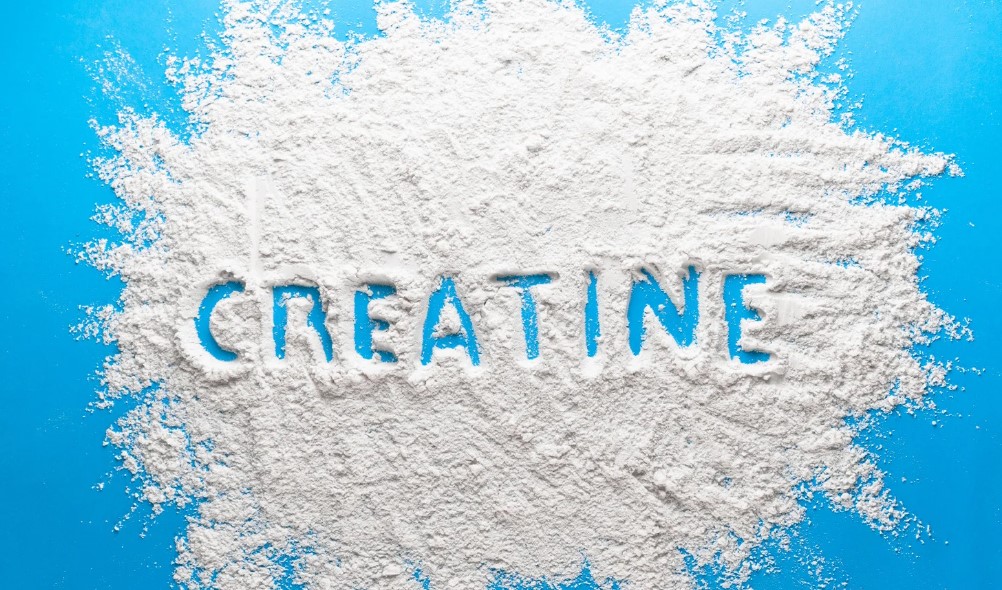
When individuals start taking creatine, they typically ramp up their exercise routines. This increased physical activity can lead to:
- Higher sweat production, which can clog pores if not washed away promptly.
- Elevated oil (sebum) production, especially if workouts are intense and frequent.
Many fitness enthusiasts also change their diets to support muscle growth when they begin creatine supplementation. This might include:
- Higher protein intake, which can sometimes be linked to skin issues.
- Increased dairy consumption is known to be associated with acne for some people.
Starting a new fitness regimen can lead to increased physical stress, which may indirectly impact skin health:
- High-intensity workouts can elevate cortisol levels, a hormone that may contribute to acne flare-ups.
- Intense training can sometimes disturb sleep patterns, reducing skin’s ability to repair itself overnight.
While creatine often receives the blame for these changes, it’s more likely that the skin issues are the result of these associated lifestyle adjustments rather than the supplement itself.
Possible Indirect Factors Contributing to Acne
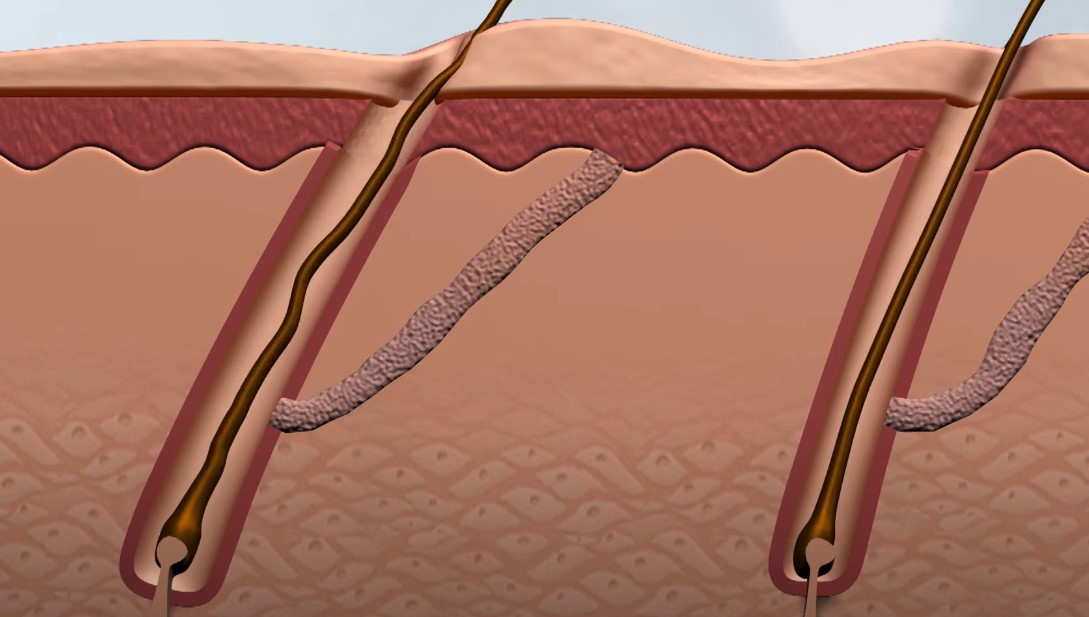
While there is no direct evidence linking creatine to acne, there are several indirect factors that might contribute to skin issues for those taking the supplement.
These factors are related to hormonal fluctuations, changes in insulin-like growth factor levels, and dietary adjustments that often accompany intensive training regimens.
Hormonal Influence
One theory suggests that creatine could potentially increase levels of dihydrotestosterone (DHT), a potent androgen hormone linked to acne. DHT is known to:
- Stimulate sebaceous (oil) glands: This can lead to an overproduction of sebum, which, when combined with dead skin cells, can clog pores and cause breakouts.
- Worsen hormonal acne: Those already predisposed to hormonal acne may be more sensitive to slight increases in DHT levels.
However, the scientific evidence remains mixed:
- While some research indicates that creatine supplementation may slightly elevate DHT, these changes are generally minimal and not enough to trigger significant acne outbreaks.
- The overall hormonal impact of creatine is still under investigation, making it unclear whether these DHT changes are sufficient to cause acne in most people.
Impact on IGF-1 Levels
View this post on Instagram
Insulin-like growth factor 1 (IGF-1) is another hormone that can influence acne. Elevated IGF-1 levels are associated with:
- Increased sebum production can make the skin more prone to oiliness and breakouts.
- Higher IGF-1 levels may also contribute to inflammation, exacerbating skin conditions.
How creatine might play a role:
- Using creatine often coincides with intense training, which can naturally increase IGF-1 levels due to muscle repair and growth processes.
- It’s worth noting that IGF-1 levels are more directly influenced by dietary choices, particularly high protein and dairy consumption, rather than by creatine itself.
Diet and Supplementation
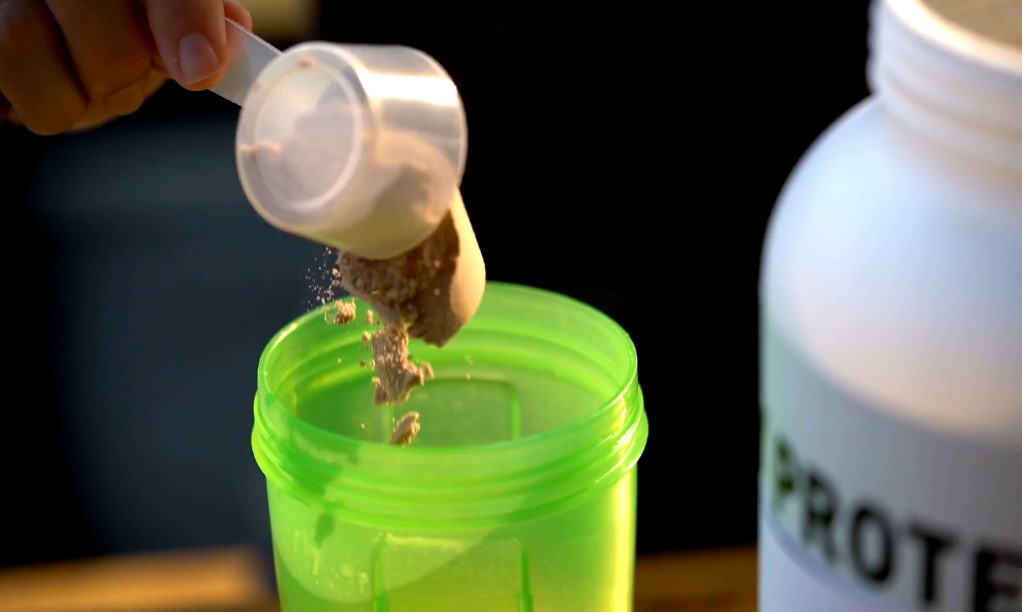
Fitness enthusiasts often make significant dietary changes when they start supplementing with creatine to maximize their muscle-building results.
These dietary shifts can indirectly contribute to acne flare-ups:
- Consuming large amounts of protein, especially from dairy sources, is linked to increased IGF-1 levels, which can exacerbate acne.
- Milk and whey protein supplements can stimulate sebum production and increase the likelihood of breakouts.
Focusing too heavily on protein and supplements can sometimes lead to neglecting essential nutrients found in fruits, vegetables, and whole grains. The imbalance can:
- Reduce skin health by depriving the body of antioxidants and anti-inflammatory nutrients.
- Lead to dehydration, which can worsen skin conditions.
Practical Tips for Managing Acne While Using Creatine
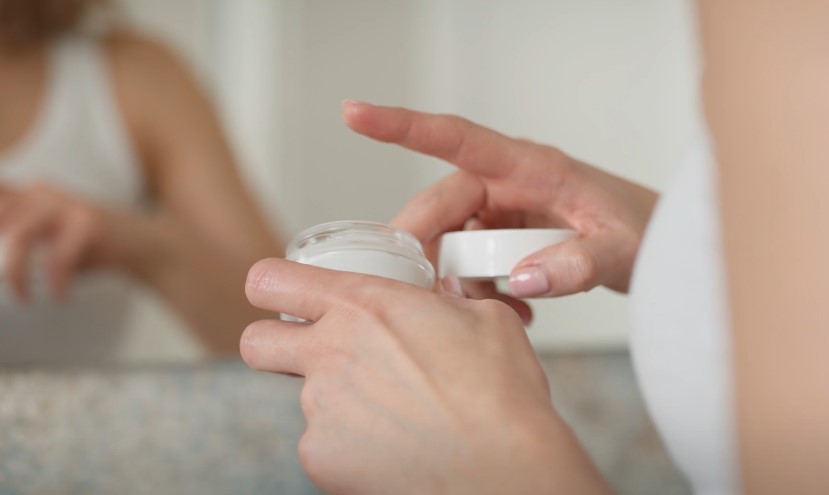
If you’re concerned about acne while using creatine, adopting a comprehensive approach to skincare and lifestyle can help you manage and potentially prevent breakouts.
Here are practical tips to minimize the risk of skin issues while benefiting from your supplementation:
Skincare Recommendations
To reduce the chances of acne flare-ups, maintaining a consistent skincare routine is essential:
- Look for products that cleanse without stripping the skin’s natural oils. Harsh soaps can dry out your skin, prompting it to produce more oil, which can worsen acne.
- Choose moisturizers that are specifically labeled as non-comedogenic to avoid clogging pores.
- While exfoliating helps remove dead skin cells, overly abrasive scrubs can irritate the skin, potentially triggering more breakouts.
- Sweating during intense exercise can mix with oil and bacteria on your skin, increasing the risk of clogged pores.
Hydration and Diet
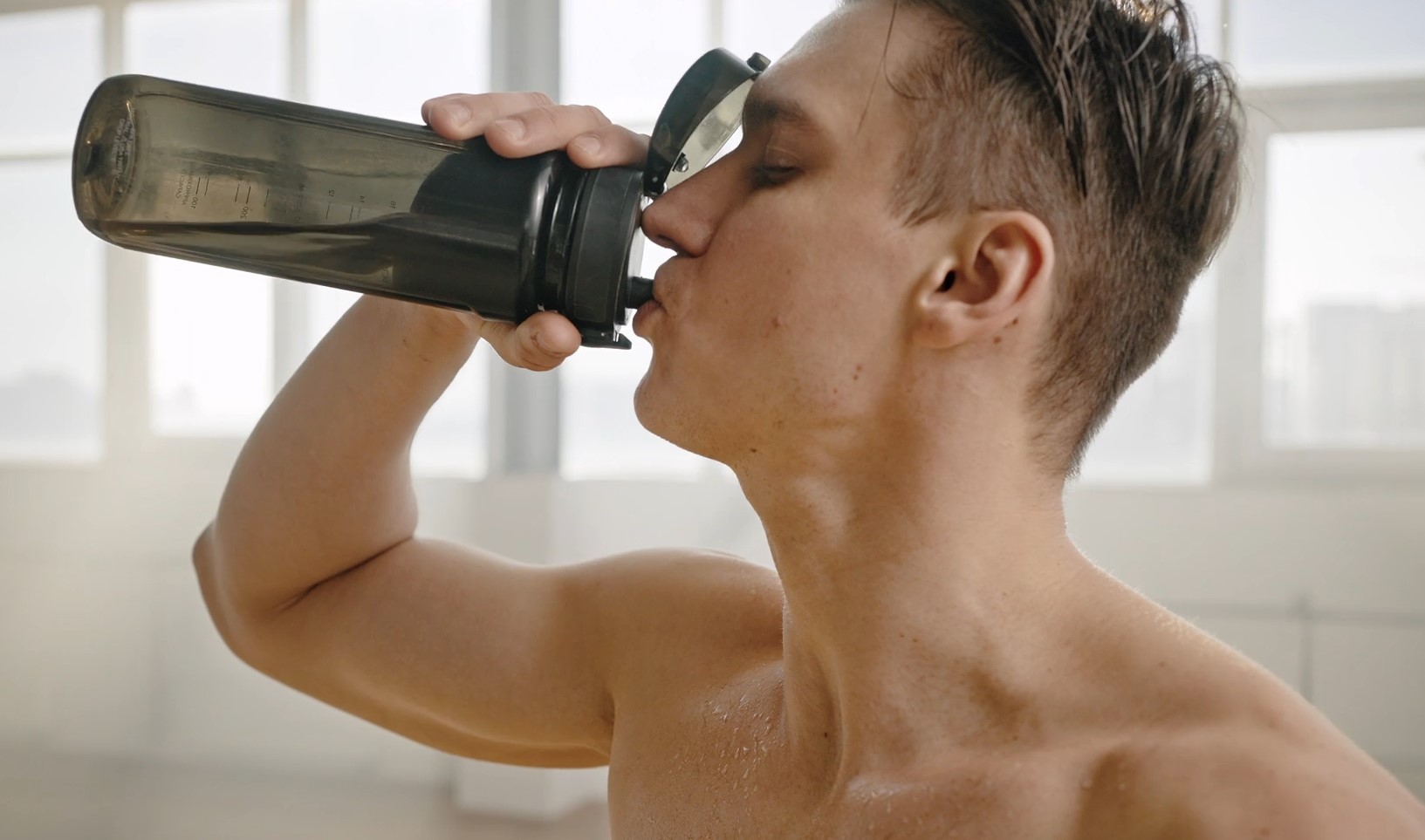
The connection between diet, hydration, and skin health cannot be overstated. Making smart dietary choices can improve your skin’s resilience.
Drinking plenty of water helps flush out toxins and keeps your skin hydrated, which can prevent dryness that leads to increased oil production.
Adding a variety of fruits, vegetables, whole grains, and lean proteins into your diet. These foods provide essential vitamins and antioxidants that promote healthy skin.
Fruits and vegetables high in vitamin C (like oranges and bell peppers) can help reduce inflammation. Omega-3 fatty acids found in fish, flaxseeds, and walnuts can help regulate oil production.
Some studies suggest a link between dairy products, particularly skim milk, and increased acne. Processed foods high in sugar can also spike insulin levels, which may worsen breakouts.
Supplementation Guidelines
When it comes to creatine, moderation is key to reducing potential side effects, including indirect effects on your skin:
- Consuming 3-5g of creatine per day is typically sufficient for most people. Taking more than this is not only unnecessary but can lead to dehydration, which might indirectly contribute to skin issues.
- If you notice skin changes after starting creatine, try reducing your dosage or taking a break to see if your symptoms improve.
- If acne persists despite these adjustments, speak to a dermatologist or nutritionist. They can provide personalized advice and suggest alternative supplements if needed.
Summary
There is no clear scientific evidence linking creatine supplementation to acne. While some indirect factors may contribute, the impact varies from person to person.
It’s crucial to consider individual differences and lifestyle factors when assessing any potential side effects.
Always consult experts to find the best approach to your fitness and skincare routines for personalized advice.
